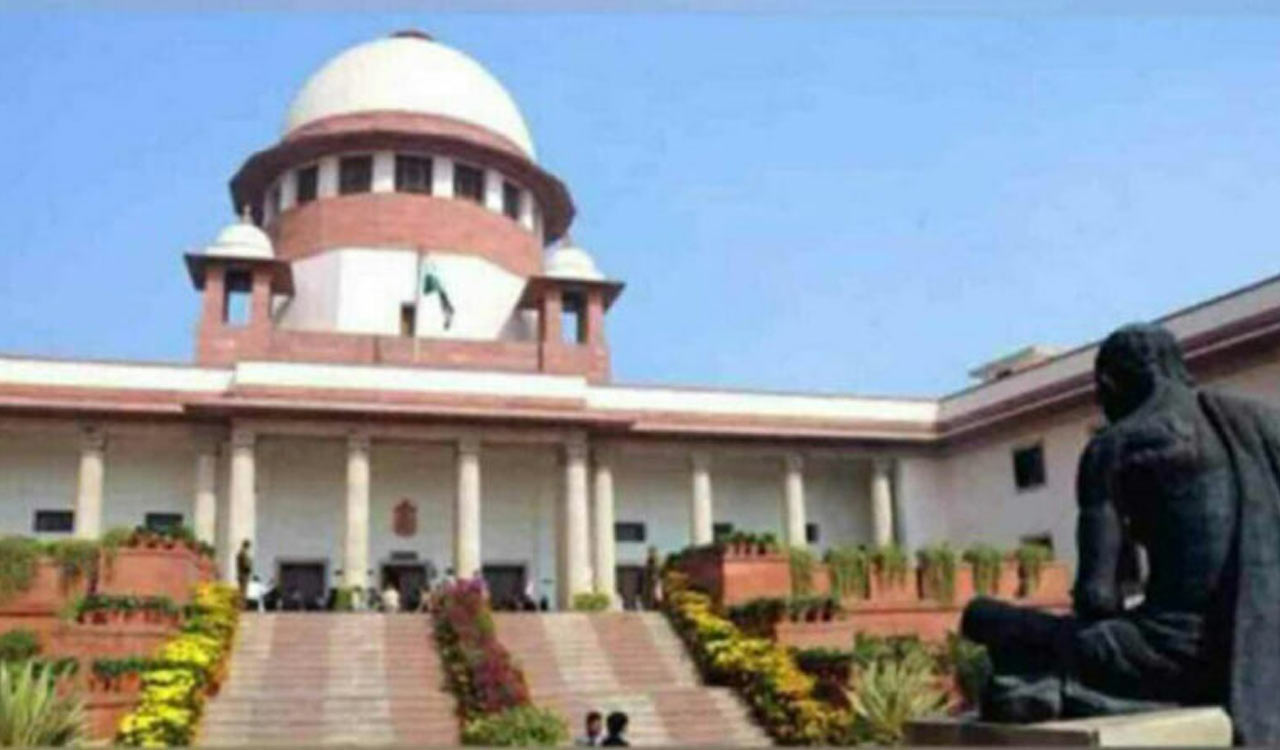The Chief Justice of India, DY Chandrachud, administered the oath of office to the new Supreme Court judges
Published Date – 05:44 PM, Thu – 9 November 23

New Delhi: Justices Satish Chandra Sharma, Augustine George Masih and Sandeep Mehta were sworn in as Supreme Court judges on Thursday.
The Chief Justice of India, DY Chandrachud, administered the oath of office to them.
The Supreme Court Collegium on Monday recommended the names of the new judges for the appointment of apex court judges.
The centre reportedly cleared the recommendation on Wednesday.
Delhi High Court Chief Justice Satish Chandra Sharma, Rajasthan High Court Chief Justice Augustine George Masih and Gauhati High Court Chief Justice Sandeep Mehta were recommended for elevation to the Centre for Supreme Court judges.
The Collegium, comprising Chief Justice of India DY Chandrachud, Justices Sanjay Kishan Kaul, Sanjiv Khanna, BR Gavai, and Surya Kant, has said while recommending their names that the Supreme Court has a huge backlog of cases and in view of the ever-mounting pendency of cases, the workload of judges has increased considerably.
The Supreme Court of India has a sanctioned strength of 34 judges and was functioning with 31 judges. After three new judges were sworn in today, the Supreme Court will function with a full strength of 34 judges tomorrow.
“The Supreme Court has a huge backlog of cases. In view of the ever-mounting pendency of cases, the workload of judges has increased considerably. Bearing in mind the above, it has become necessary to ensure that the Court has full working judge-strength leaving no vacancy at any point in time. Bearing in mind the above, the Collegium has decided to fill up all the three existing vacancies by recommending names,” the recommendation has stated.
It has been stated that the Collegium deliberated on and discussed the names of Chief Justices and senior puisne judges of the High Courts eligible for appointment to the Supreme Court.
“Judgements authored by those falling in the zone of consideration for elevation to the Supreme Court were circulated among the members of the Collegium well in advance for a meaningful discussion on an assessment of their judicial acumen. The Centre for Research and Planning of the Supreme Court has prepared a compilation of relevant background material to assist the Collegium,” it added.




